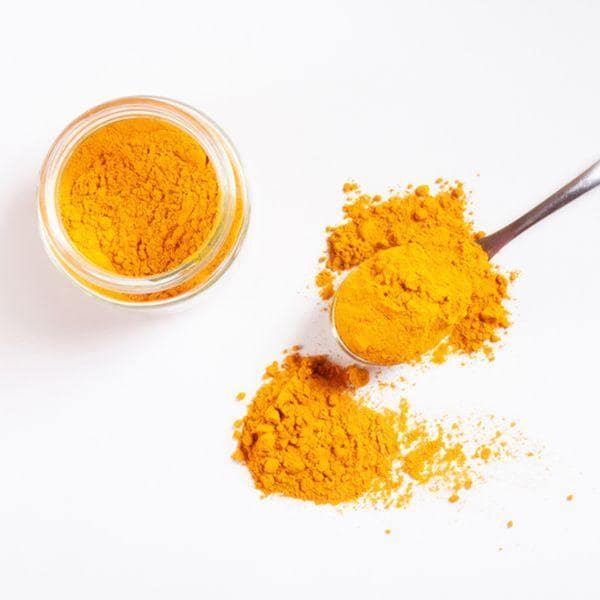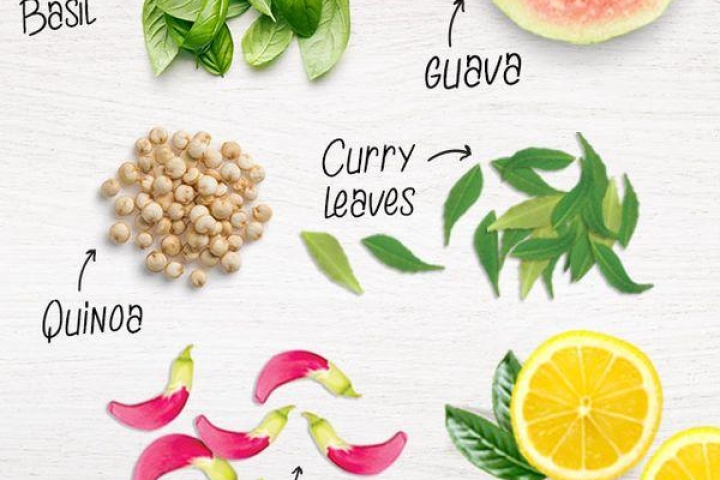Turmeric vs Curcumin: What is the Difference?
Turmeric vs. Curcumin
You’ve probably heard a lot about the benefits of turmeric and curcumin, owing to highly-publicized studies that highlight their health-promoting properties. You might have also noticed that sometimes the two are used interchangeably, despite offering many similar benefits, which can be somewhat confusing. So, what’s the difference? And which one is better to take as a supplement?
The two are often mentioned together because curcumin is derived from turmeric. Turmeric has been used as an herbal remedy for thousands of years, and its use throughout history is well-documented for promoting health. Naturally, researchers have been keen to identify what makes turmeric so beneficial. They have discovered that one of the most significant health-promoting components of turmeric is curcumin. But does that mean curcumin is always the better choice? Not necessarily—it isn’t quite that simple!
What is the Difference Between Curcumin and Turmeric?
Turmeric is a plant scientifically known as Curcuma longa. It’s the roots, or “rhizomes,” of this plant that are used in culinary spice powders and herbal tonics. Curcumin is a naturally occurring compound found within the turmeric plant’s roots. It's a carotenoid pigment that has strong antioxidant activity and imparts the vibrant yellow color to turmeric. Turmeric also contains two other related compounds: demethoxycurcumin and bisdemethoxycurcumin, collectively known as curcuminoids.1
You may be familiar with some other carotenoids, like lutein and zeaxanthin for vision health, and beta-carotene, which the body converts into vitamin A. These compounds not only provide color pigmentation to foods but also help plants absorb light for energy and photosynthesis, and act as antioxidants to defend against free radicals.2 It might seem strange at first to consider that pigments are beneficial for us, but our bodies are complex and utilize natural substances in ways we might never imagine! Numerous research studies have indicated that curcumin may be able to influence multiple cell signaling molecules,3 which helps explain why repeated studies demonstrate curcumin's diverse and positive effects on our health.3
Which is Better: Turmeric or Curcumin?
Since curcumin is derived from turmeric, does it matter which one you choose? Is one better than the other? Arguments exist for both. Many experts agree that obtaining most of our nutrients as nature intended, from whole foods, is ideal because other nutrients within our foods may also play a role in how our bodies process them and the benefits we derive from them. This is why you’ve probably heard that it's better to eat most fruits with their skins on, as the peels contain beneficial nutrients too.
Turmeric Roots and Turmeric Extract
Turmeric roots contain a variety of substances beyond curcumin. The turmeric spice in your kitchen is made by drying and grinding whole turmeric root into a powder. Turmeric extract, however, is produced by shredding turmeric root and soaking it in edible solvents for several weeks before straining, resulting in a concentrated elixir. Turmeric root is also used in wellness teas.
Curcumin Extract
Extracting curcumin is more complex. Curcumin only constitutes about 3% of the weight of turmeric root4 and is isolated using a scientific method known as chromatography,5 which separates the curcuminoids and allows for curcumin to be isolated.
The concentration of curcumin is lowest in turmeric root powder, at around 3%, higher in turmeric extract, which can contain up to 95% curcumin,4 and highest in 100% curcumin extracted from turmeric. Research indicates that extracted curcumin has more antioxidant activity compared to turmeric powder, but the other curcuminoids in turmeric (demethoxycurcumin and bisdemethoxycurcumin) also exhibit antioxidant properties.5
Curcumin and Turmeric Absorption
Another factor to consider in the curcumin vs. turmeric discussion is absorption. Neither curcumin nor turmeric is well absorbed without help from fats or oils.4 Turmeric root contains some natural oils that may enhance the bioavailability of the curcumin within it, but both are absorbed best when consumed with additional fats.6
Using ground turmeric as a culinary spice may be advantageous, as it is often combined with fats or oils in food. Turmeric lattes are becoming popular, which is beneficial due to the natural fats in milk. However, you will often find supplements that pair curcumin with healthy essential fatty acids, like our krill oil and curcumin supplement.
Black pepper may also enhance the bioavailability of turmeric due to a compound in black pepper known as piperine, which may prevent turmeric compounds from breaking down during digestion, thereby allowing them to remain in the body longer.6
What is the Best Form of Turmeric?
When choosing any supplement, always look for options with ethically harvested and pure ingredients, without hidden components in proprietary blends. If your goal is to consume turmeric root without adding it to your food, a highly-concentrated premium turmeric supplement may be best for you. If you are seeking supplemental turmeric with the most curcumin content, turmeric extract might be the preferable choice. And if your stomach is sensitive to standard turmeric, a fermented turmeric extract may be easier on your stomach and provide additional digestive support.
What is the Best Form of Curcumin?
The best curcumin supplements promote superior absorption either through their manufacturing process (as with highly absorbable Theracurmin®) or by combining curcumin with other supplements that aid in absorption, like krill oil and curcumin.
Researchers have noted the extremely high bioavailability of Theracurmin®, as demonstrated in studies, including one that yielded impressive results for cognitive health from taking Theracurmin®. Theracurmin® is more efficiently absorbed as it is created by dispersing curcumin with colloidal submicron-particles, which make it easier for the body to absorb curcumin. Compared to other supplements used in one study, the concentration of curcumin in participants who took Theracurmin® was between 5.6 and 10.7 times higher than that of other curcumin supplements.7
Curcumin for Memory, Mood and Attention
The University of California has published the results of an exciting study on the potential benefits of curcumin for memory, mood, and attention. The type of curcumin used in the study was Theracurmin®, chosen for its “more rapid absorption and peak concentration.”8
The study was a double-blind, placebo-controlled trial following 40 subjects aged between 51 and 84 for 18 months. The participants, who were nondemented but had complained of memory lapses, experienced significant improvements in memory, attention, and mood while taking Theracurmin®.8
Participants received 90 mg of Theracurmin® twice per day, totaling 180 mg per day. If you want to try it for yourself, you can find the same type of curcumin used in BubbForest Ultra High Absorption Theracurmin®. However, our Theracurmin® supplement is standardized to 27%, so you will need to take three capsules twice each day, totaling six capsules per day, to reach the intake used in the study.
Curcumin or Turmeric?
Both curcumin and turmeric have their advantages. Turmeric powders and supplements offer a whole-foods approach, retaining more of the root’s nutrients as nature intended. Curcumin supplements provide an isolated form of the most active antioxidant compound found in turmeric, and if you want the highest-powered, most bioavailable form of curcumin, Theracurmin® is an excellent option.
No matter your choice, as long as you choose a high-quality supplement from a trusted source, both turmeric and curcumin offer significant health benefits.
Learn more about the benefits of turmeric and curcumin in the article What is Turmeric?
*These statements have not been evaluated by the Food and Drug Administration. These products are not intended to diagnose, treat, cure, or prevent any disease.
About Lindsey Toth, MS, RD
Lindsey is a nationally recognized registered dietitian and nutritionist with a soft spot for pie. She empowers people to take charge of their health by finding the balance between the pleasure and nourishment in food. Her philosophy is that you should take care of your body because it’s the only permanent home you have. It’s what inspired her to pursue a career in nutrition.
Sources
1. Curcumin. Profiles of Drug Substances, Excipients, and Related Methodology. Read source
2. Carotenoids. Oregon State University. Read source
3. Therapeutic Roles of Curcumin. The AAPS Journal. Read source
4. Turmeric Spice vs. Turmeric Supplements. ConsumerLab. Read source
5. Curcumin Chromatography. Journal of Agricultural and Food Chemistry. Read source
6. Turmeric and Black Pepper. ConsumerLab.com. Read source
7. Curcumin Absorption. Journal of Nutritional Science and Vitaminology. Read source
8. Effects of a Bioavailable Form of Curcumin. The American Journal of Geriatric Psychiatry. Read source





Leave a comment